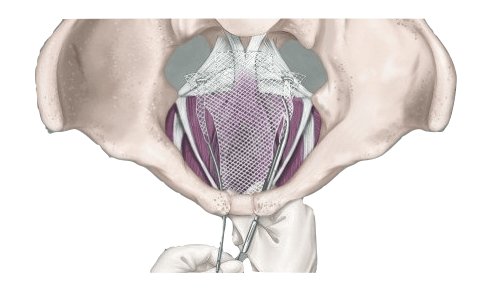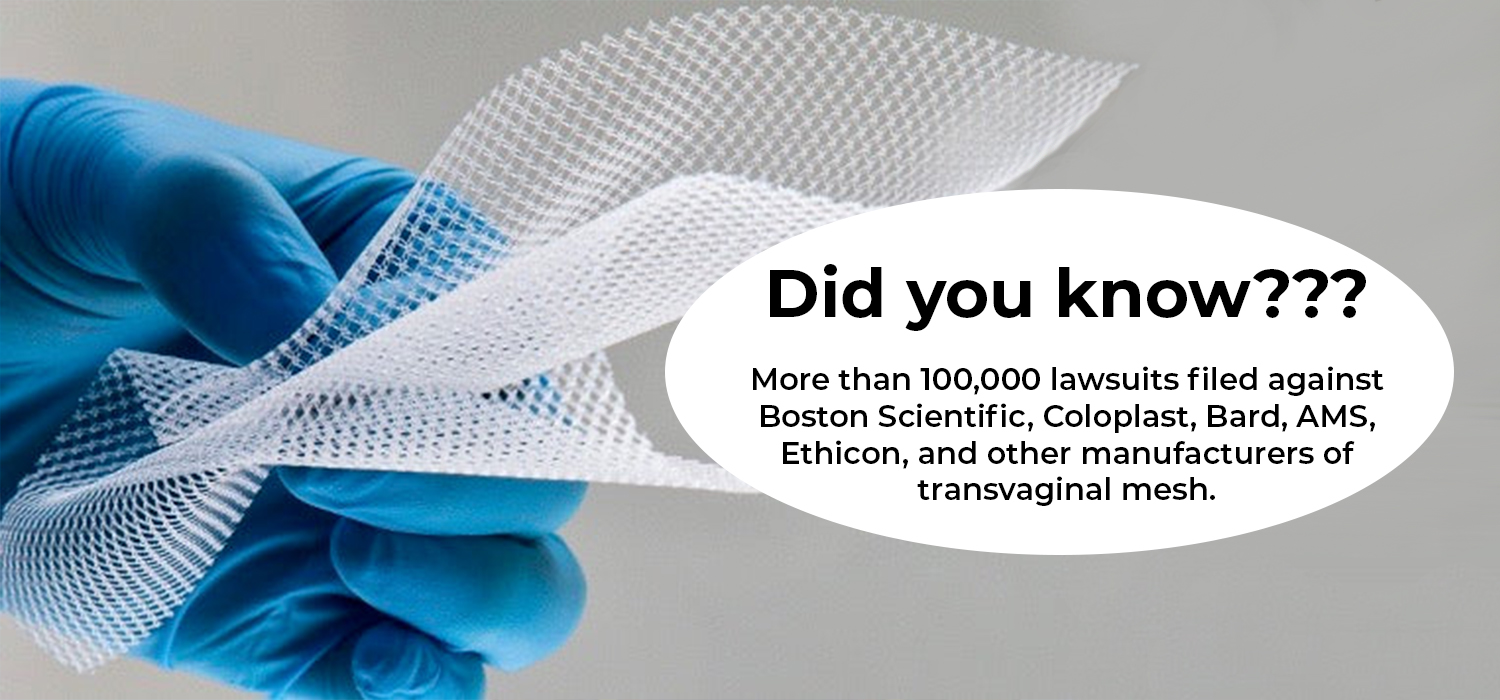Transvaginal Mesh
Transvaginal mesh is a net sheet type of medical equipment surgeons use to repair weakened and damaged tissue in a woman’s bladder or pelvic area. Transvaginal refers to the surgical technique used by the doctors as an implanting mesh through the vagina. This net-like device treats permanent stress urinary incontinence and pelvic organ prolapse conditions usually associated with childbirth, hysterectomy, or menopause.
Timeline

Although this procedure is becoming more common, it is also regarded as dangerous to some women. There are grave concerns about the safety and efficiency of transvaginal placed mesh.
Common Side Effects
- • Urinary Problems.
- • Irregular Bleeding.
- • Painful Intercourse.
- • Chronic Pain and Infection
Serious Side Effects
- • Erosion and Exposure of Mesh.
- • Recto Vaginal Fistula.
- • Recurrence of POP and SUI
Arguments:
“Governments pausing of mesh implants has come too late for far too many women”
“Mesh erosion can cause several symptoms including severe pain, pelvic prolapse sexual dysfunction etc.”
There has been an ongoing debate on whether mesh has to be removed if it starts to cause problems? It is possible to remove the mesh in case of complications, but the surgical procedure to remove it, is fraught with difficulties. The sheet is normally intertwined with the surrounding tissues and displacing the same may damage the neighboring organs.
Four categories of Mesh
- • Non-Absorbable synthetic
- • Absorbable synthetic
- • Biologic
- • Composite
Can the ban be lifted on transvaginal mesh?
It is argued that only if these 6 parameters are met, mesh surgeries can be started again.
- • Appropriately trained surgeons performing the procedure regularly.
- • Every surgery should be reported to the national database.
- • Register of operations to be maintained.
- • Reporting every complication.
- • Accreditation of specialist centers for performing and removing the mesh procedures.
- • Following NICE guidelines on using the mesh.
As per the National Institute for Health and Care Excellence (NICE) guidelines, mesh surgeries can be offered again if the above-mentioned conditions are met.

Approximately 11% of women around the world suffer due to worsening prolapse conditions. Trained specialists and medical practitioners pursuing certificate courses in reproductive medicine have a great opportunity in untangling such complicated and controversial topics. Pelvic organ prolapse is an intricate subject with several challenges. In light of the increasing issues, it is extremely important for doctors to be thorough with surgical procedures. A diploma in reproductive technology with Medline Academics provides you with the right set of solutions to such composite issue. To know more about transvaginal mesh, register for our clinical courses now!
